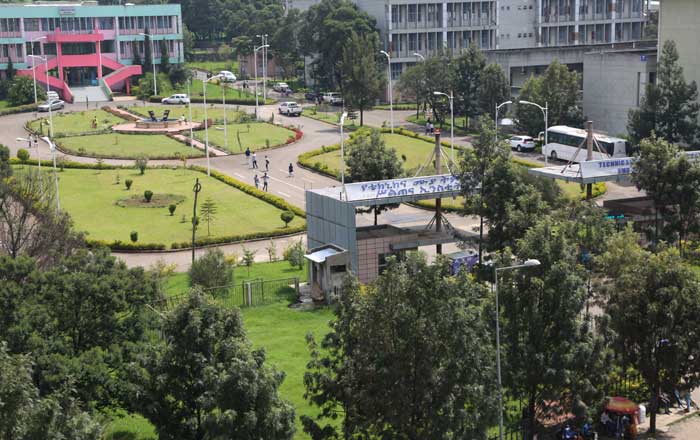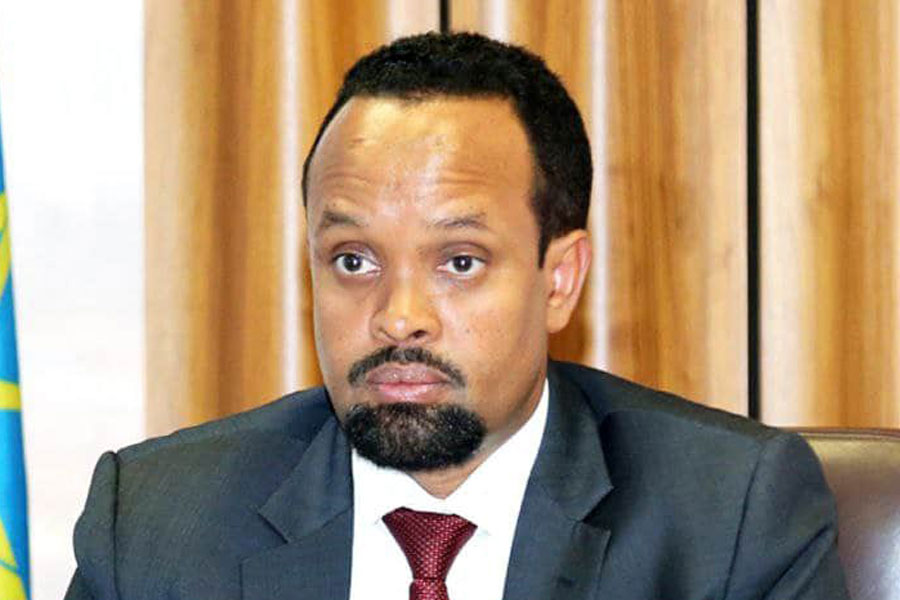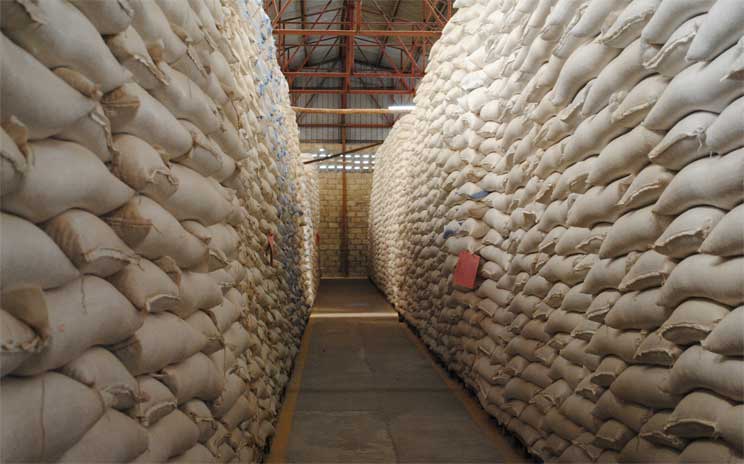
Covid-19 | Jun 07,2020
Jun 10 , 2023
By AKSAH ITALO ( FORTUNE STAFF WRITER )
The establishment and provision of arbitration centres are underway, with the Ministry of Justice drafting the regulatory framework to improve the efficiency, transparency and quality of arbitration institutions.
Officials hope to expand publicly available roasters and specialised arbitral institutions to expedite procedures with wider and faster recourse.
Henok Tesfaye, civil justice administration director at the Ministry, said setting standard requirements has become crucial as it could be a small piece to a larger aim of modernising the legal system and an expedited procedure for claims. Their ambitious plan expands to pulling in foreign direct investment and making the city a hub for international arbitration.
The ease of the process, predictability, efficiency and authenticity are among the reasons for choosing arbitration over national courts which are specifically established by the state to apply and uphold the law and dispute resolution.
Although there are two arbitration institutes operating in the city: the Addis Abeba Chamber of Commerce & Sectoral Association Arbitration Institute (ACCSA-AI) and the Ethiopian Mediation & Arbitration Center (EMAC), their existence has been endowed with faint regulatory arbitrary tribunals and institutional capacity.
The two institutions have only handled not more than 100 dispute cases in the last few decades, halfway from what countries such as Nigeria handled in a year. Addis Abeba ranked 15th among 20 top African arbitration cities, where expertise, facilities, arbitration-friendly law and jurisdiction, multi-lingual, political stability, and security are some of the cited basis for the selections.
Mengistu Ayehu, a senior federal prosecutor at the Ministry, said the arbitration centres have failed to sell themselves to the international markets, where only domestic cases have been handled in the past few decades.
"They have become the least chosen entities," said Mengistu.
The Ministry officials called professionals and experts to discuss the first draft of the regulation at Capital Hotel (Haya Hulet Road), last week.
Getahun Walelign, a higher prosecutor at the Ministry, presented the first briefing of the draft to a public hearing entailing the provisions, establishment requirements and organisational structure of arbitral centres.
Experts conducted a study observing the experiences of countries that are considered a hub for arbitration and hailed Vietnam which has over 32 arbitral institutions, according to Getahun.
Stakeholders applauded the initiation while raising concerns and suggestions.
Yohannes Woldegebriel, director of the Chamber's Arbitration Institute, raised his concerns over the Ministry bringing in regulation without building the groundwork for the judicial system. He warned against the imitation of other countries' legal frameworks without considering the different political frameworks the countries are built with.
Another participant Mahder Zeru, a legal expert from the National Bank of Ethiopia (NBE) said the arbitration institutions need to be income-generating entities rather than fund driven in order to stand independently.
"It'll hamper their growth," said Mahder.
According to the draft, arbitration centres will be formed in five structural hierarchies, including board members, an appointed director general, a secretariat, a finance manager and a manager of professionals.
The Board which is the highest organ, will be responsible for reviewing the charter and making final decisions on arbitrary policies. The Ministry has the mandate to supervise operations, the power of issuance, renewal and revocation of licences, drafting laws, guiding and certifying trained arbitration professionals, accreditation and curving the arbitration curriculum on a yearly basis.
Mihreatab Leul, a managing partner of Miherteab & Getu Advocates LLP, confirmed the necessity of branding in creating stronger arbitration institutions. The lawyer emphasized the need to liberalise the sector to attract foreign arbitrators.
Issues over insurance, tax incentives and the unclear stipulation of the identity board members were questions aired by other legal experts. They warned against the formulation of arbitration law without a private international law which will create unequivocal challenges in conducting international arbitrations.
The Senior Federal Prosecutor at the Ministry concurs. by saying that there are cases where private international law will come in handy in handling international disputes. He also disclosed the efforts of drafting and ratifying the law had previously failed.
Ethiopia accepted the New York Convention three years ago, becoming the 33rd African country to be a signatory of the international convention.
Initial capital is set to be decided upon the enactment of regulation while requirements for new arbitration centres include having a legal experience of no less than 10 years and a bank account known by the Ministry to oversee transactions, including administration and professional fees. The Ministry will provide business licenses eligible for 10 years for an approved applicant.
Tadesse Lencho, a managing partner at Tbest law firm, questioned the necessity of creating many arbitration centres where one has failed even to flourish. He spoke against creating a non-profit arbitration entity where they will become constantly dependent on aid and recommends the government not exclude itself from institutionalising arbitrary centres.
"That's not liberalising," he said.
He believes domestic arbitration needs to be revitalized before attracting foreign arbitrators, which may pave the way for monopolisation and exploitation.
The session ended with the Ministry promising to incorporate the feedback in a month.
PUBLISHED ON
Jun 10,2023 [ VOL
24 , NO
1206]

Covid-19 | Jun 07,2020

Fortune News | Aug 31,2019

Radar | Nov 14,2020

Fortune News | Jan 19,2024

Fortune News | Sep 21,2019


Sunday with Eden | Jan 12,2019

Fortune News | May 23,2020

Editorial | Oct 03,2020

Radar | Jul 24,2021

Dec 22 , 2024 . By TIZITA SHEWAFERAW
Charged with transforming colossal state-owned enterprises into modern and competitiv...

Aug 18 , 2024 . By AKSAH ITALO
Although predictable Yonas Zerihun's job in the ride-hailing service is not immune to...

Jul 28 , 2024 . By TIZITA SHEWAFERAW
Unhabitual, perhaps too many, Samuel Gebreyohannes, 38, used to occasionally enjoy a couple of beers at breakfast. However, he recently swit...

Jul 13 , 2024 . By AKSAH ITALO
Investors who rely on tractors, trucks, and field vehicles for commuting, transporting commodities, and f...

Oct 4 , 2025
Eyob Tekalegn (PhD) had been in the Governor's chair for only weeks when, on Septembe...

Sep 27 , 2025
Four years into an experiment with “shock therapy” in education, the national moo...

Sep 20 , 2025
Getachew Reda's return to the national stage was always going to stir attention. Once...

Sep 13 , 2025
At its launch in Nairobi two years ago, the Africa Climate Summit was billed as the f...